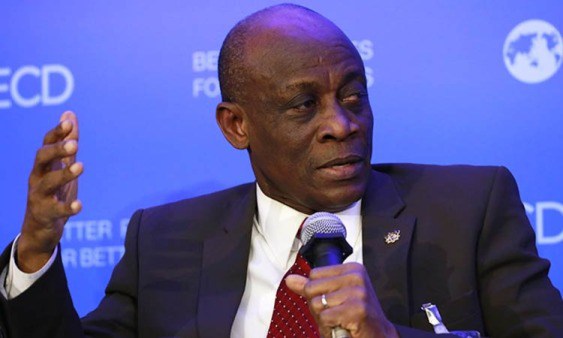IMF Bailout: Seth Terkper speaks on conditionalities likely to be imposed on Ghana
“The conditionalities to be imposed on Ghana will be known after government’s negotiations with the Fund, but given the Fund’s Article IV we can tell some of the issues that are likely to come up in government’s negotiation with the IMF.
Former Minister for Finance, Seth Terkper, has shared his thoughts on what he believes are the likely conditionalities to be imposed on Ghana by the IMF as the country prepares to undergo a Fund programme in the coming months.
Speaking to the media on Monday, July 4, 2022, on Ghana’s request to the IMF for a Balance of Payment (BoP) support programme, Mr Terkper noted that although the specific conditionalities to be imposed on the country will be known in the aftermath of the country’s negotiations with the Fund, there are some pertinent areas that are likely to come up in the negotiation talks between both parties.
These areas which the IMF is likely to consider and request the government to make some adjustments he noted, have already been pointed out in the Fund’s last Article IV assessment report on the Ghanaian economy.
Making reference to the Article IV report, the erstwhile Minister for Finance, noted the IMF is likely to impose some conditionalities in the area of the energy sector, the Central Bank’s financing of the budget deficit given that there could be a second round of the Bank of Ghana financing government’s deficit as was the case in 2020 during the peak of the pandemic.
The financing of the Free SHS – government’s biggest flagship programme – and its sustainability is also likely to be tabled as part of the broader discussions to take place between government and the IMF.
“The conditionalities to be imposed on Ghana will be known after government’s negotiations with the Fund, but given the Fund’s Article IV we can tell some of the issues that are likely to come up in government’s negotiation with the IMF.
“Issues that are likely to come up in the negotiations include the energy sector bailout costs where it can be a conditionality that government will be required to go back to comprehensive reporting of the sector, showing the deficit, arrears and debts in the sector, so that there is greater transparency.
“Another area could be the financing of the budget deficit by the BoG, and the Fund may want to know and discuss how long the government intends to use this approach.
“Then there is the Free SHS, if government cannot finance it with its own revenue and cannot also go to the market to borrow to finance it, will the government still be adamant in wanting to finance it to create more arrears or the government will now want to do a new version of it to minimize costs, seeing that compensation, interest payments and amortisation have crowded out all other expenditures,” he noted.
Also likely to suffer some conditionalities will be the allowance paid to nursing and teacher trainees by the government.
A team from the International Monetary Fund is set to arrive in Ghana on Wednesday, July 6, 2022, to commence negotiations with the Government of Ghana on the modalities for a package to support Ghana’s economy.
Ghana, per its request for a bailout, is seeking balance of payment support as part of a broader effort to quicken Ghana’s build back in the face of challenges induced by the Covid pandemic and recently, the Russia-Ukraine crisis.
According to the Information Minister, Kojo Oppong Nkrumah, Ghana is likely to receive about $2 billion in assistance from the International Monetary Fund (IMF).


